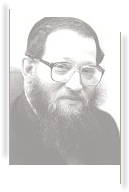 "And the Children of Israel said (to Moshe and Ahron), 'would that we had died by the hand of HaShem in the land of Egypt when we sat by the pot of meat, when we ate food to fullness," (Shemos, 16, 3).
"And the Children of Israel said (to Moshe and Ahron), 'would that we had died by the hand of HaShem in the land of Egypt when we sat by the pot of meat, when we ate food to fullness," (Shemos, 16, 3)."And Moshe and Ahron said to the Children of Israel, 'even then you will know that HaShem brought you out from the land of Egypt," (Shemos 16, 6).
This verse is teaching us that by providing the quail and Mahn in response to their fear of hunger in the desert, the Jewish People will know that HaShem is the One solely responsible for their salvation. But why is food used as the vehicle to deliver this essential lesson that serves as a fundamental cornerstone of Jewish doctrine? And why is their fear centered around their previous eating habits in Egypt?
Surely the wilderness of the desert could have easily prompted other concerns causing anxiety for the Jewish People (wild animals, lack of shelter, etc . . .). Why were they focused on the food, and what's the lesson HaShem is trying to teach us through this episode in the exodus from Egypt?
The commentator Seforno offers a powerful and penetrating insight. He explains that Moshe prayed that when HaShem responds to the nation's request for food, He should provide their sustenance on a nightly basis, exactly enough for that evening (no more and no less). And through this manner of provision, the Jewish People will know that HaShem is taking them out of Egypt - not just taking the Jews out of the land of Egypt, but taking Egyptian attitudes and behaviors completely out of the Jewish People.
For they yearned to return to the gluttonous ways of Mitzrayim, which was always having a pot of meat at their side, continually grazing like an animal, with no proper boundaries and guidelines in their relationship with food. They were likened to chickens constantly pecking at garbage, demeaning and debasing themselves just for another morsel of this, or bite of that.
This continued until HaShem's servant Moshe instilled the concept of set times for meals - teaching them to behave like mentchen (proper human beings) when it came to eating - having proper portions and proper times. This, the Seforno says, is the explanation of these verses, about how HaShem didn't just take the Jews out of Egypt, but took Egypt out of the Jews.
How can we deny this clear and graphic lesson? When we run from shul to shul hoping to chap another slice of cake here, or piece of kugel there, are we not enslaving ourselves back to Egyptian culture, ascribing importance to their sets of mores and values? Is this the Jewish way to have a holy and healthy relationship with food? Are we really being kadosh at a kiddush?
Is this the example to set for our children - to eat whenever we feel like it and whatever we want, like a cow grazing in a field or a chicken pecking at garbage? We're instructed to remember and relive the exodus from Egypt every day. It doesn't have to be just theoretical. Good שבת
from a Sovea Newsletter






























No comments:
Post a Comment